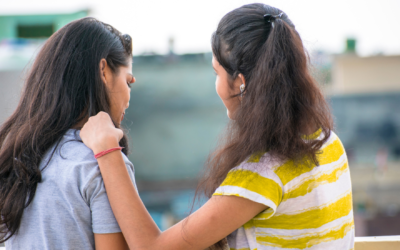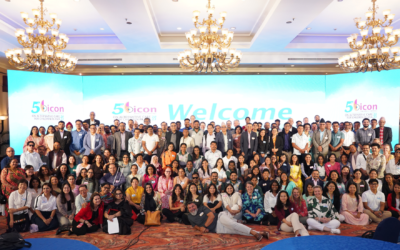This blog is a collaborative piece of work between Hope and Homes for Children, Forget Me Not, The Himalayan Innovative Society, and Martin James Foundation as part of their Developing a Model of Community-Owned Foster Care in Nepal Project.
“We learned to prioritise the wellbeing of children first. The welfare of children is the responsibility of all of us.” Mr. Khem Prasad Mahato, Deputy Mayor, Madi Municipality
In Chitwan last month, care-experienced children and young people and more than forty participants from a number of organisations came together to share their collective wisdom at a group workshop, supported by the Martin James Foundation.
The organisations were:
- Madi Municipality
- Ichchhakamana Rural Municipality
- Bagmati Province
- National Child Rights Council
- The Himalayan Innovative Society
- Forget Me Not
- Hope and Homes for Children
- Alternative Care Working Group
The workshop focused on building a common understanding of child protection in Nepal, and creating a values-aligned action plan for care reform.
We also covered an overview of family and community-based alternative care for children and the current foster care provisions in Nepal, and discussed resource allocation for alternative care services.
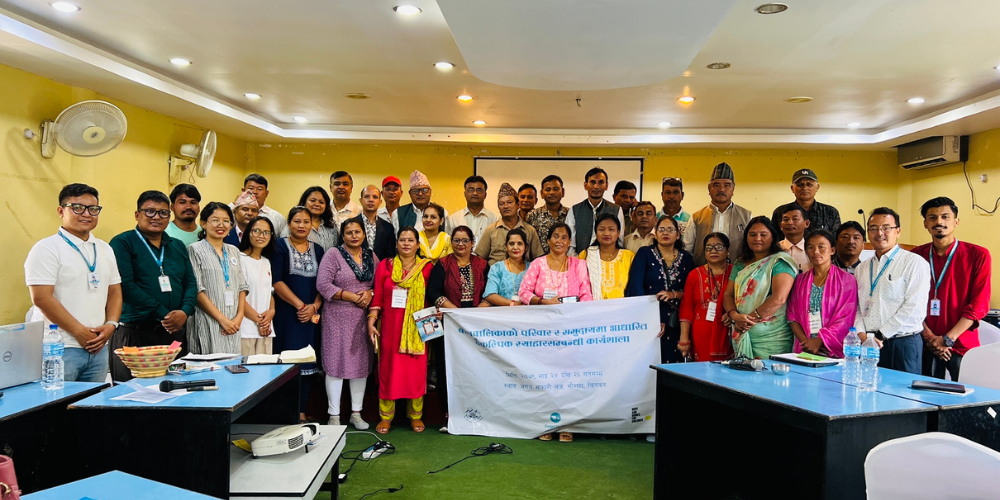
What was discussed?
At the workshop, the National Child Rights Council explained their current process for and future plans to develop and invest in family and community-based alternative care services rather than using institutions like orphanages.
“When a child is safe in family, when their academic performance improves, when the environment inside their home is thriving, that is the true sign of development.” Ms. Namuna Bhusal, Child Protection Manager, National Child Right Council
Participants also discussed Nepal’s national and international child rights commitments (UNCRC, Children’s Act 2018 & Implementation Guidelines) and the National Child Rights Council plan to appoint Child Welfare Officers in all 753 municipalties by the end of the current Nepali fiscal year.
“When municipalities merge, then a Province is born. Therefore, municipality is supreme in the decision making in all aspects of safeguarding and child protection.” Mr. Gopal Prasad Kandel, Head of Social Department, Bagmati Province
Together, we considered the root causes of family separation, why children may be in need of special protection, and alternative care options for children, including kinship care, foster care, supervised individual living and residential care.
“When a child is safe in family, when their academic performance improves, when the environment inside their home is thriving, that is the true sign of development.” Ms. Namuna Bhusal, Child Protection Manager, National Child Right Council
After the workshop, we all had a deeper understanding of the Principles of Necessity and Suitability (the fundamental principles of alternative care), the concept of foster care,the roles of stakeholders and the responsibilities of local governments and national and provincial child rights committees councils to drive for reform.
“Family is the base for the holistic development of children. The concept of Foster Care is to provide a family to a guardian-less child.” Mr. Kapil Aryal, Legal expert
Social security schemes were discussed as one strategy to strengthen families, prevent the institutionalisation of children, and cultivate child friendly municipalities.
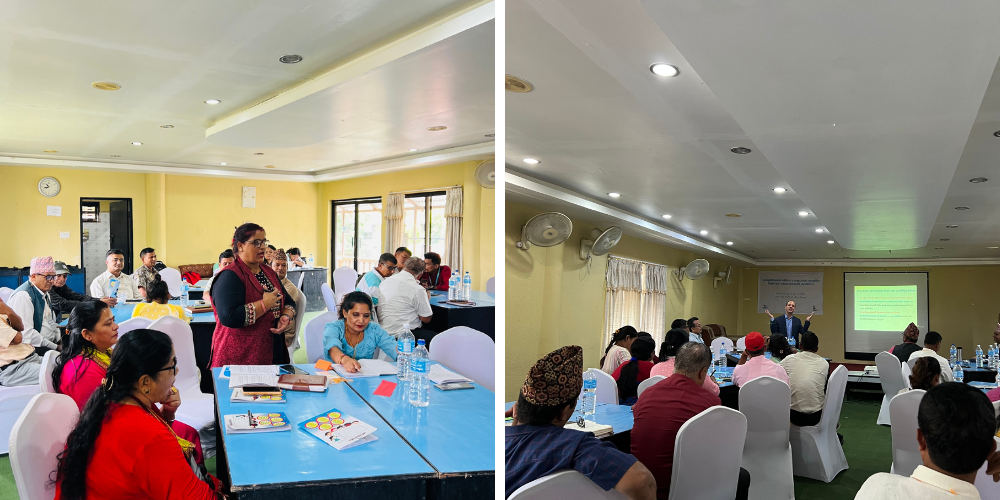
Our joint 10 Point Participant Pledge
We made a 10 Point Participant Pledge following the workshop, to ensure we had a clear plan of action to move forward with in the future. This was:
- Pilot and promote family and community based alternative care in the two municipalities.
- Understand and implement existing laws and policies of Nepal – Children’s Act 2018 and implementation guidelines – to protect and safeguard children’s rights.
- Listen to care experiences from children and young people in order to make better decisions for the most vulnerable children in our communities.
- Prioritise the transition of two municipality-led institutions and focus on the reintegration of remaining children into families and alternative care where possible.
- Establish Foster Care Advisory Committee.
- Update National Child Rights Council website to include detailed information about children’s homes in Nepal to inform local level planning, decision-making and resource allocations by municipalities.
- Increase the number of child/youth members of municipality Child Rights Committees.
- Fast track municipality work plan development and appoint Child Welfare Officers.
- Improve case management and individual care plans (including children’s socialisation plan) of children in care.
- Reflect and share foster care best practices.
“This has been an opportunity to learn and improve ourselves. There are a lot of things that has to be done legally and today you have shown us that the legal way is the right way.” Ms. Maya Silwal, Vice President, Ichchhakamana Rural Municipality
We would like to say thank you to all the participants at the workshop for their input and commitment. We look forward to working together to drive for care reform in Nepal.
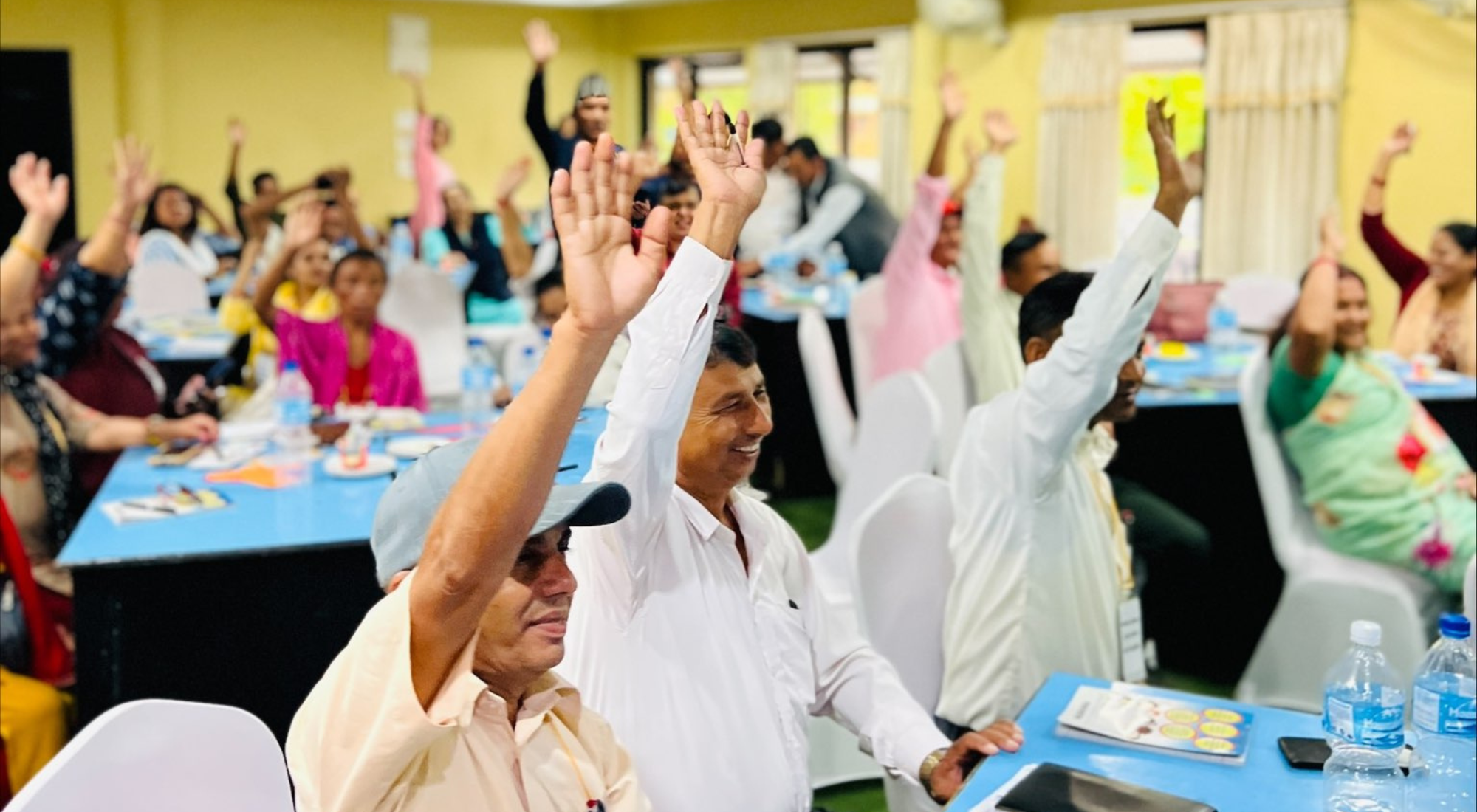
This workshop was part of the Developing a Model of Community-Owned Foster Care in Nepal project, a partnership between Forget Me Not, Hope and Homes for Children, The Himalayan Innovative Society, and the Martin James Foundation.

